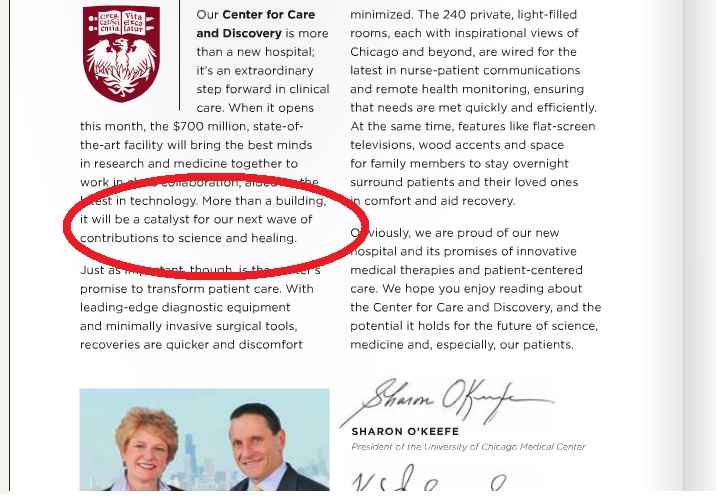Blatancy does not command respect.
Over-statement, in reaction, creates commensurate resistance.
– Lord & Thomas Creed #1
While I’m a big fan of big claims and bold promises, strategic subtlety can be very persuasive, in a stealthy kind of way.
Take a look at an recent example I got in the mail. Here’s an excerpt from Imagine, a quarterly “magazine” from the University of Chicago Medicine.
Notice how the writer implies that the University has a noteworthy history of “contributions to science and healing” without coming out and saying it. The sentence gently forces you to draw assumptions, subtly prompting your imagination to fill in the blanks.
This is more effective, not to mention easier to consume, than sharing a list of achievements that most readers will probably find boring.
One of the great secrets to persuasion is that people almost never doubt their own conclusions. A simple statement like the example above convinces us that the University of Chicago Medicine has a remarkable past of medical advancements, which makes a promising future seem almost inevitable.
All of that with no apparent effort to “sell” the idea to the reader.
Consider this: if the writer had tried to convince you of all the wonderful things that have been accomplished in the past, how would you have reacted. The mere attempt to convince is a turn-off. As Lord & Thomas Creed #1 says, “Too much effort makes men think that your selling task is hard.”
Strategic subtlety makes the quality of your product, service or brand seem to stand on its own. It’s so good that you don’t even need to explain it.
Where can you use subtlety in your sales copy to improve its persuasive power?

